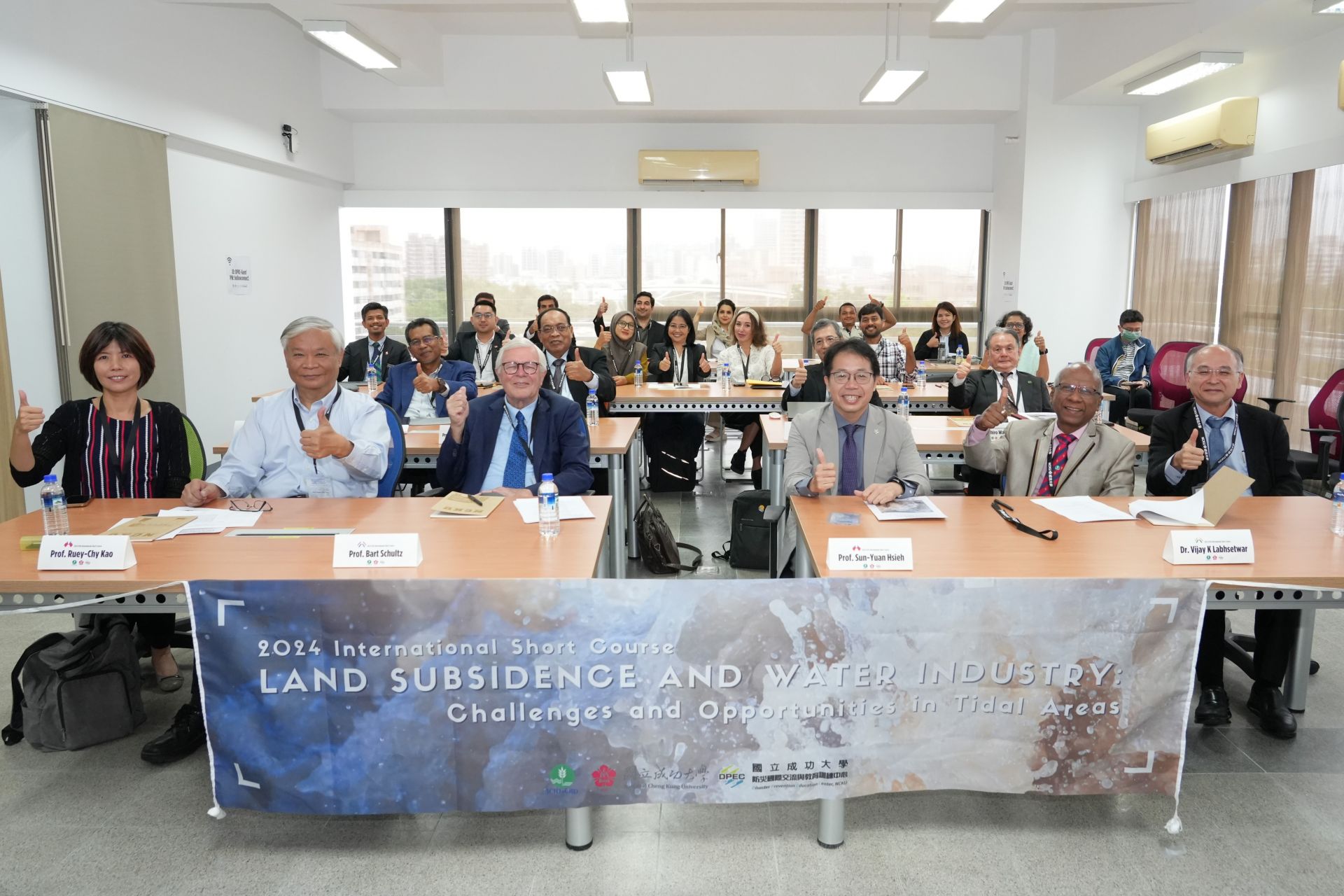As climate change poses urgent threats to the environment, human existence, and national security, over 130 countries globally have pledged to achieve 'Net Zero Emissions by 2050.' Taiwan unveiled the 'Taiwan 2050 Net Zero Emissions Roadmap and Strategy Overview' and '12 Key Strategic Action Plans' in March and December of 2022, respectively. In January 2023, the 'Net Zero Emissions Roadmap for 2023-2025' was approved, outlining various mitigation and adaptation measures towards achieving net zero carbon emissions.
The Google-NCKU Zero Carbon Emissions Seminar invited Google experts such as Frank Tung, Operations Manager at Google's Taiwan Data Center (NCKU Mechanical Engineering alumni), to share Google's sustainability initiatives and goals. Google became the first company to execute carbon neutrality in 2007 and, after ten years of continuous operation, successfully became the first major company to use 100% renewable energy for its annual electricity consumption. In 2020, Google issued $5.75 billion in sustainable development bonds, the largest such issuance in history. Dr. Mike Tyka, a PhD in biophysics, joined Google's Climate and Energy team in 2020, focusing on studying ocean carbon removal technology using global circulation models.
Several NCKU professors were also invited to share their research findings in the field of carbon removal. Professor Chuh-Yung Chen, Convener of the Taiwan Zero Carbon Technology Solutions Promotional Group, shared insights from attending the 2023 COP28 Climate Summit, including various declarations, images, and measures taken by countries to achieve net zero carbon emissions. He emphasized the importance of not only reducing fossil fuel consumption but also actively seeking alternative energy sources to replace petrochemical fuels.
Carbon removal research encompasses a diverse range of topics, including carbon capture, utilization, and storage, all of which require interdisciplinary dialogue and collaboration. As the world faces the challenges of climate change, developing carbon removal technologies has become a framework for scientists to innovate and address global warming. This aligns with national goals of achieving net zero emissions by 2050, aiming to create milestones for a greener future through key technological innovations.
Chuan-Pu Liu, Vice President for Research and Development at NCKU, expressed hope that today's event would foster closer collaboration between industry, faculty, and students, facilitating technological innovation through integrated research resources. He emphasized the importance of seeking external resources collaboratively to enhance both parties' research and development capabilities, strengthen future personnel exchanges, and cultivate a more comprehensive talent pool in carbon emissions technology.
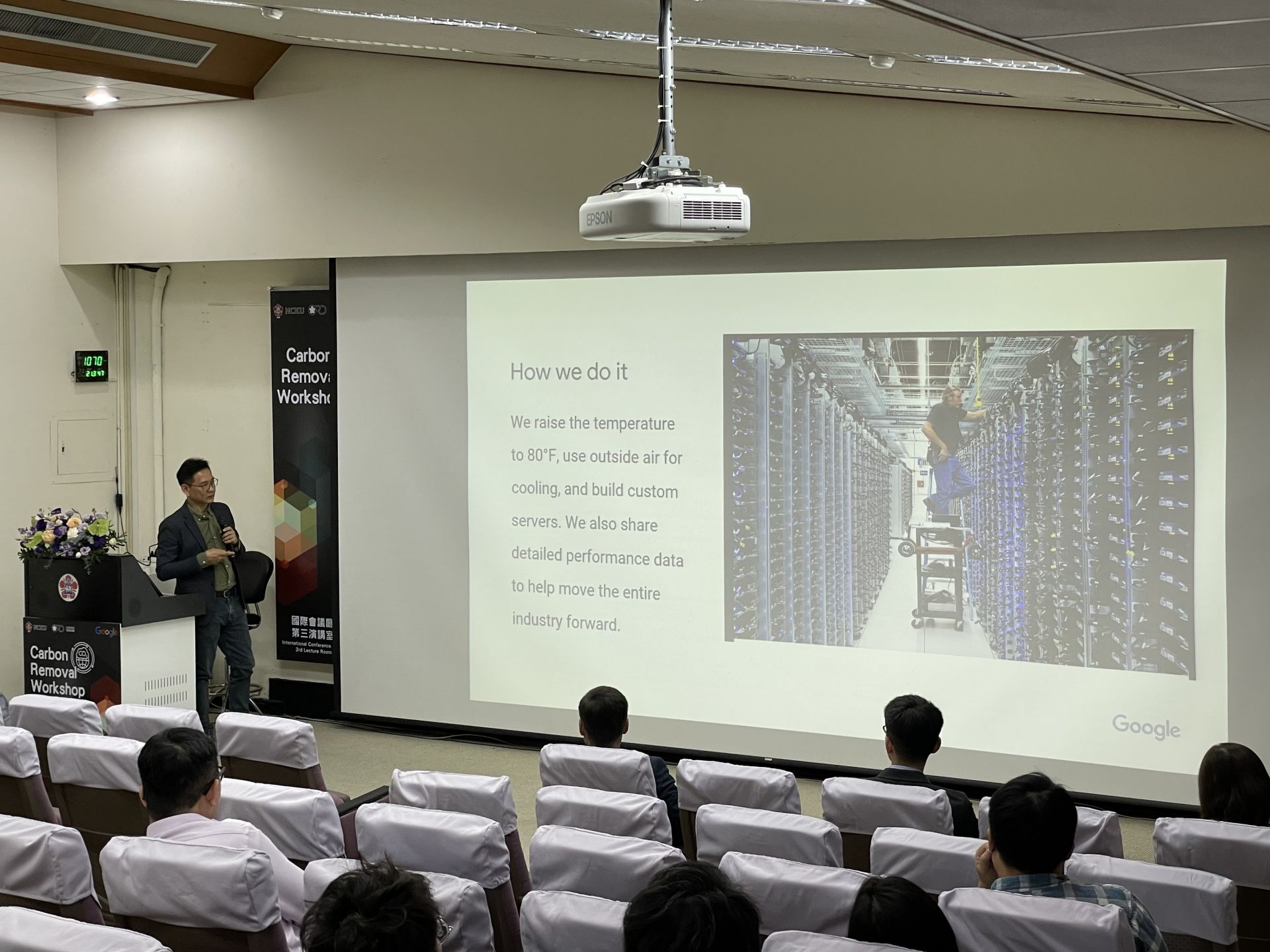
The seminar invites Google experts to discuss with faculty and students from NCKU the development of zero-carbon emission technologies and future collaborations.
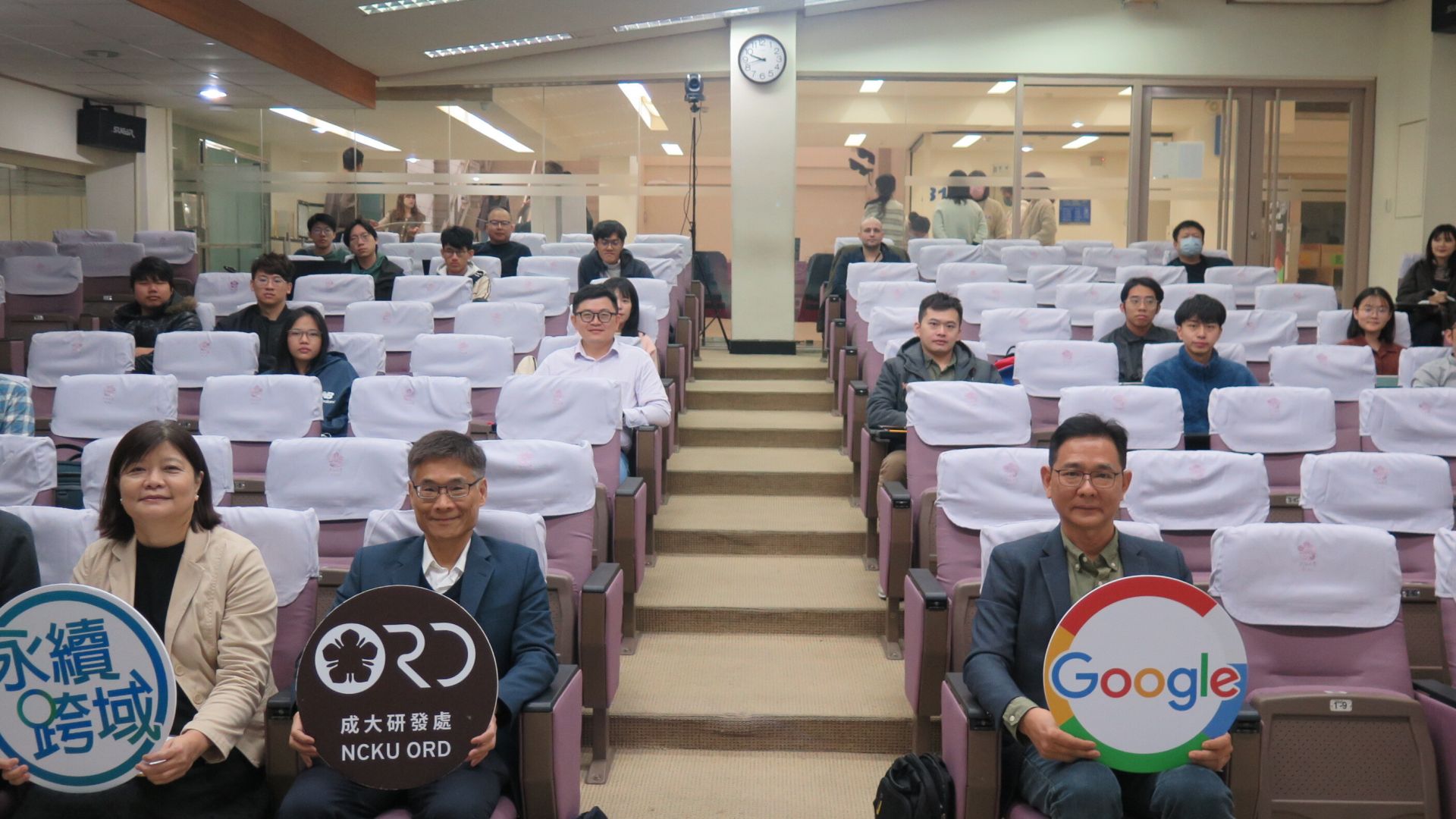
Google and NCKU Zero Carbon Emissions Seminar.
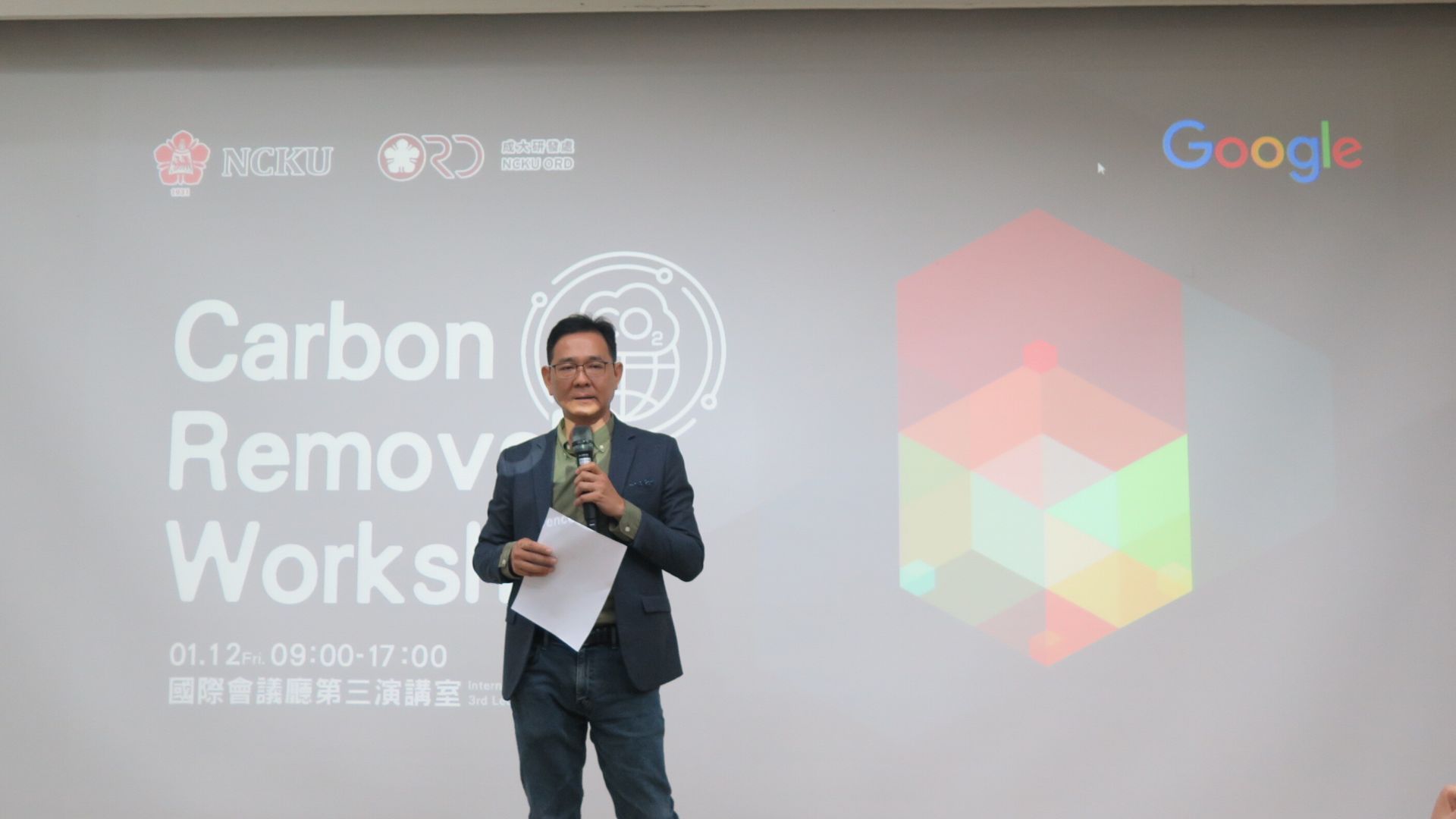
Frank Tung, Operations Manager of the Taiwan Data Center, shared measures for temperature regulation in data centers.
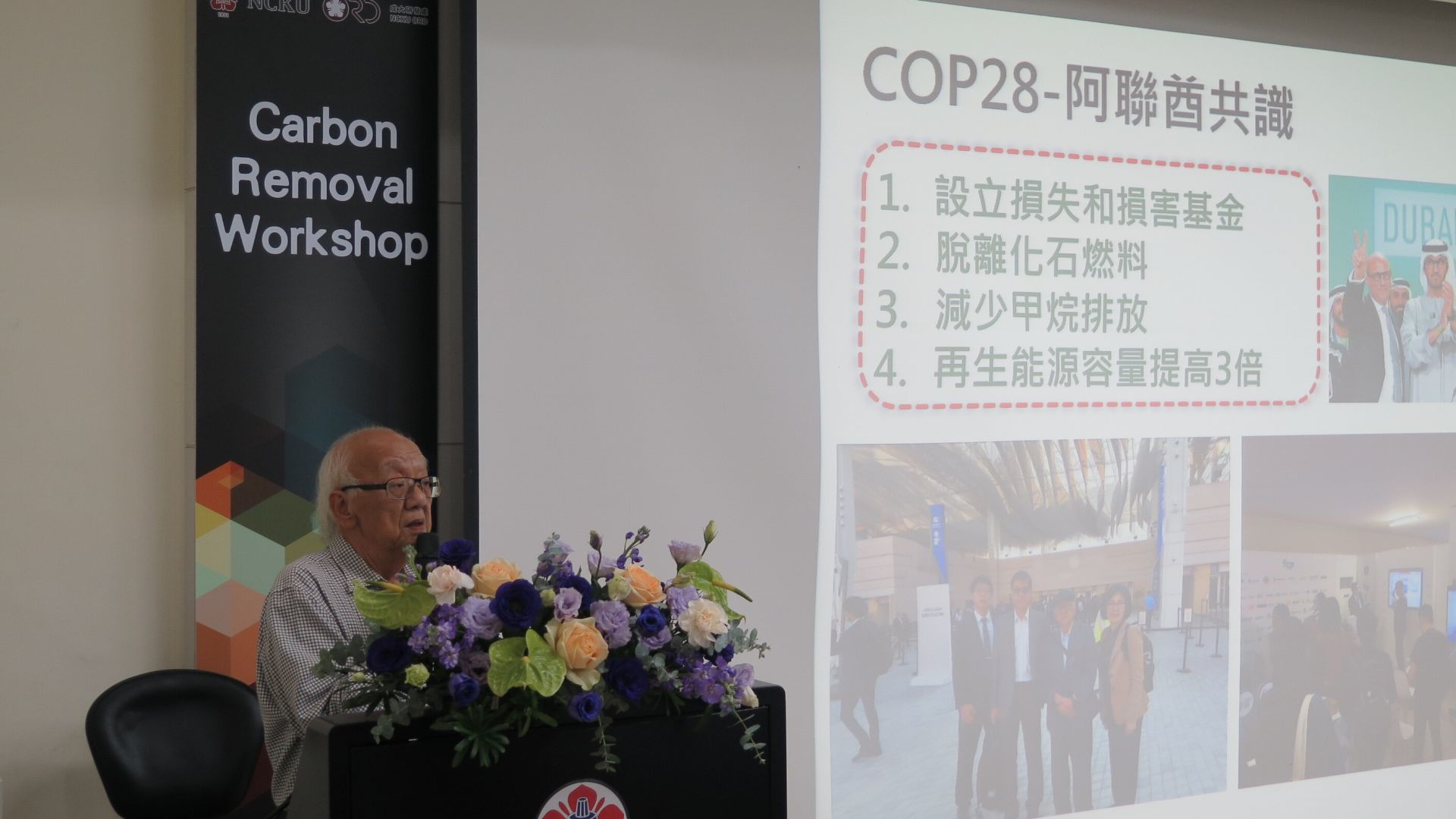
Professor Chuh-Yung Chen shared the declarations and visions received at the COP28 Climate Summit, as well as the measures taken by various countries to achieve net-zero carbon emissions.
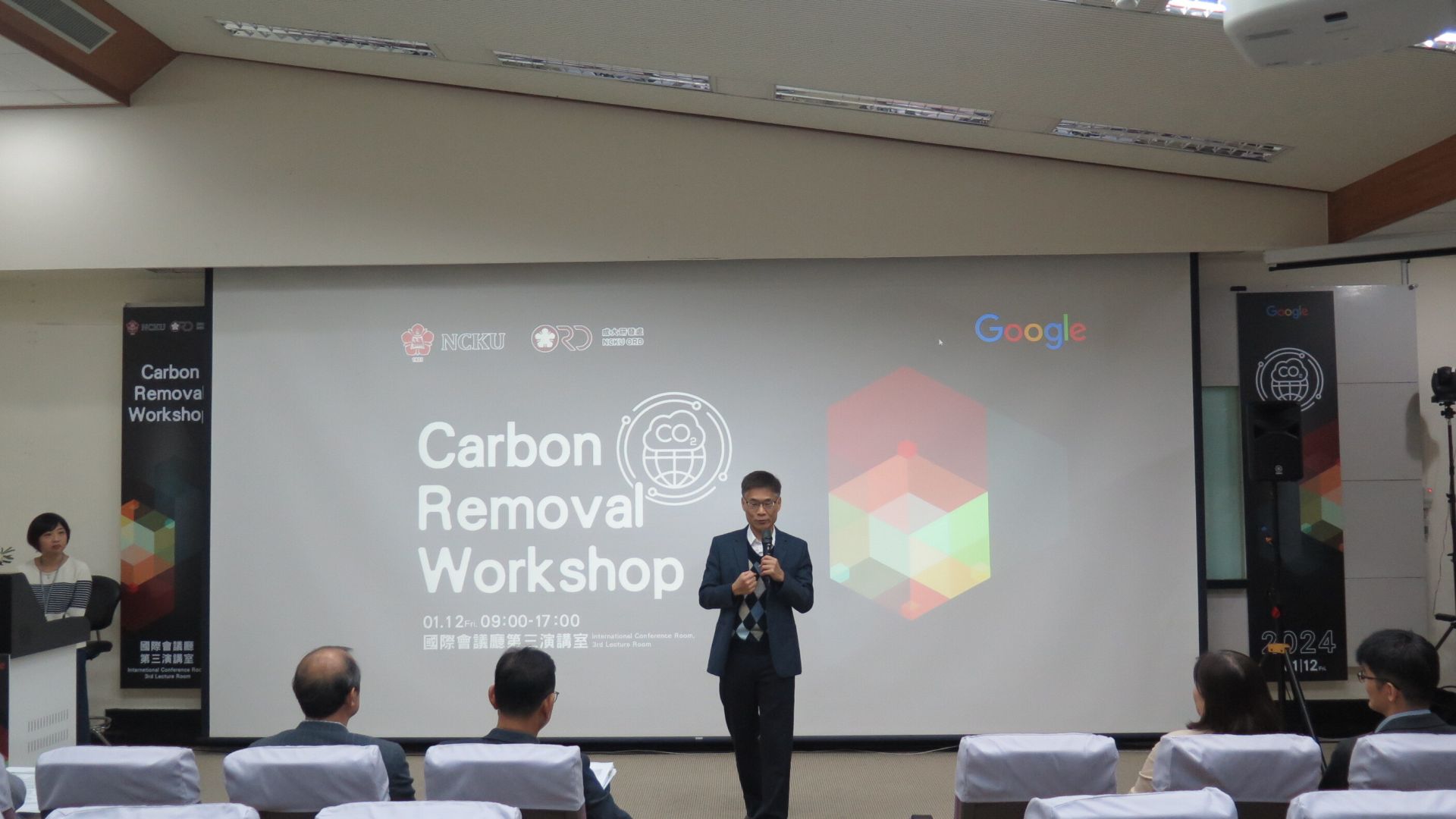
NCKU's Vice President for Research and Development, Chuan-Pu Liu, expressed his hope that today's event would facilitate the establishment of closer collaboration between the industry, faculty, and students. He aims to achieve technological innovation and research and development goals through the integration of research resources.

SDG13NCKU Leads Global Satellite–Ground Integration Project to Build a Biodiversity Carbon Credit Verification System
View more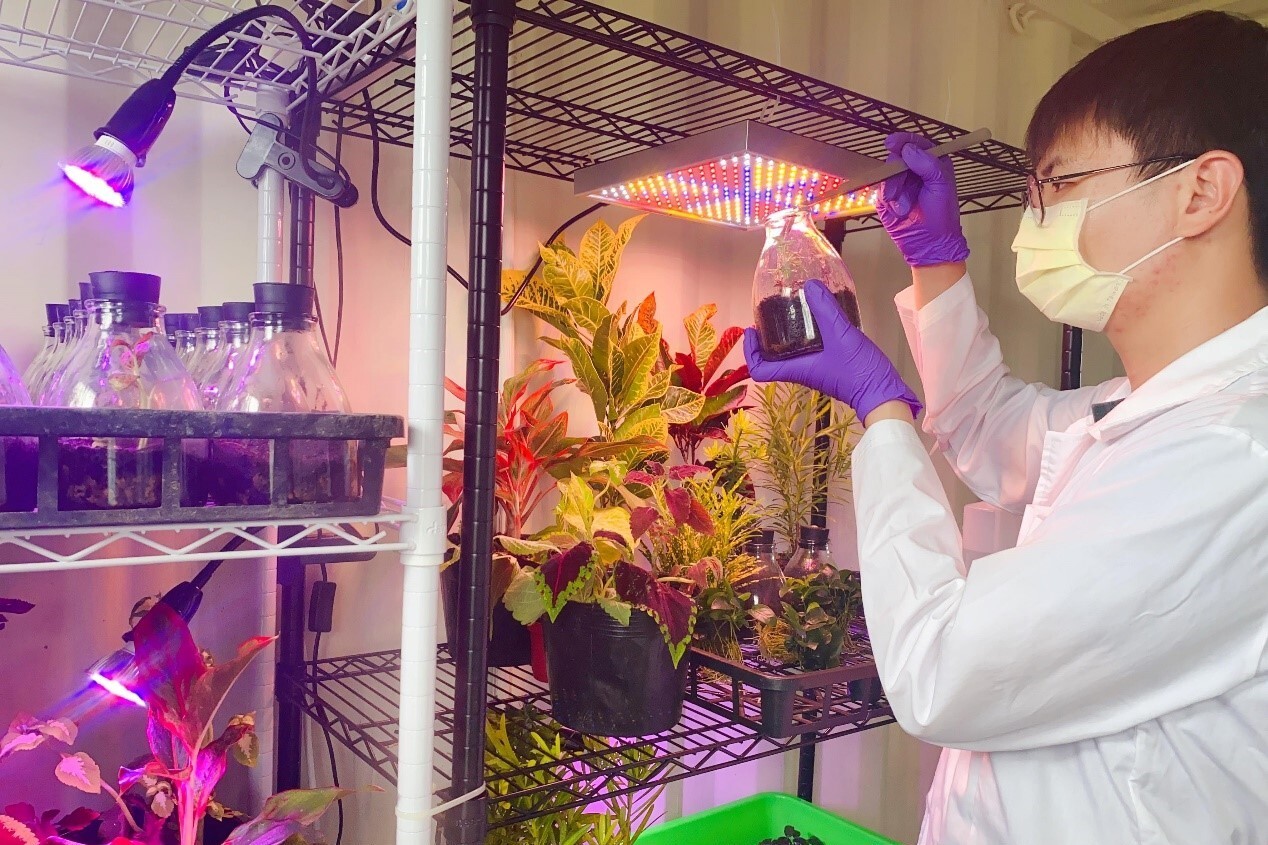
SDG13The Application of Technological and Agricultural Industry-Academy Cooperation of Yen-Hsun Su's team of MSE, NCKU, is Superb
View more